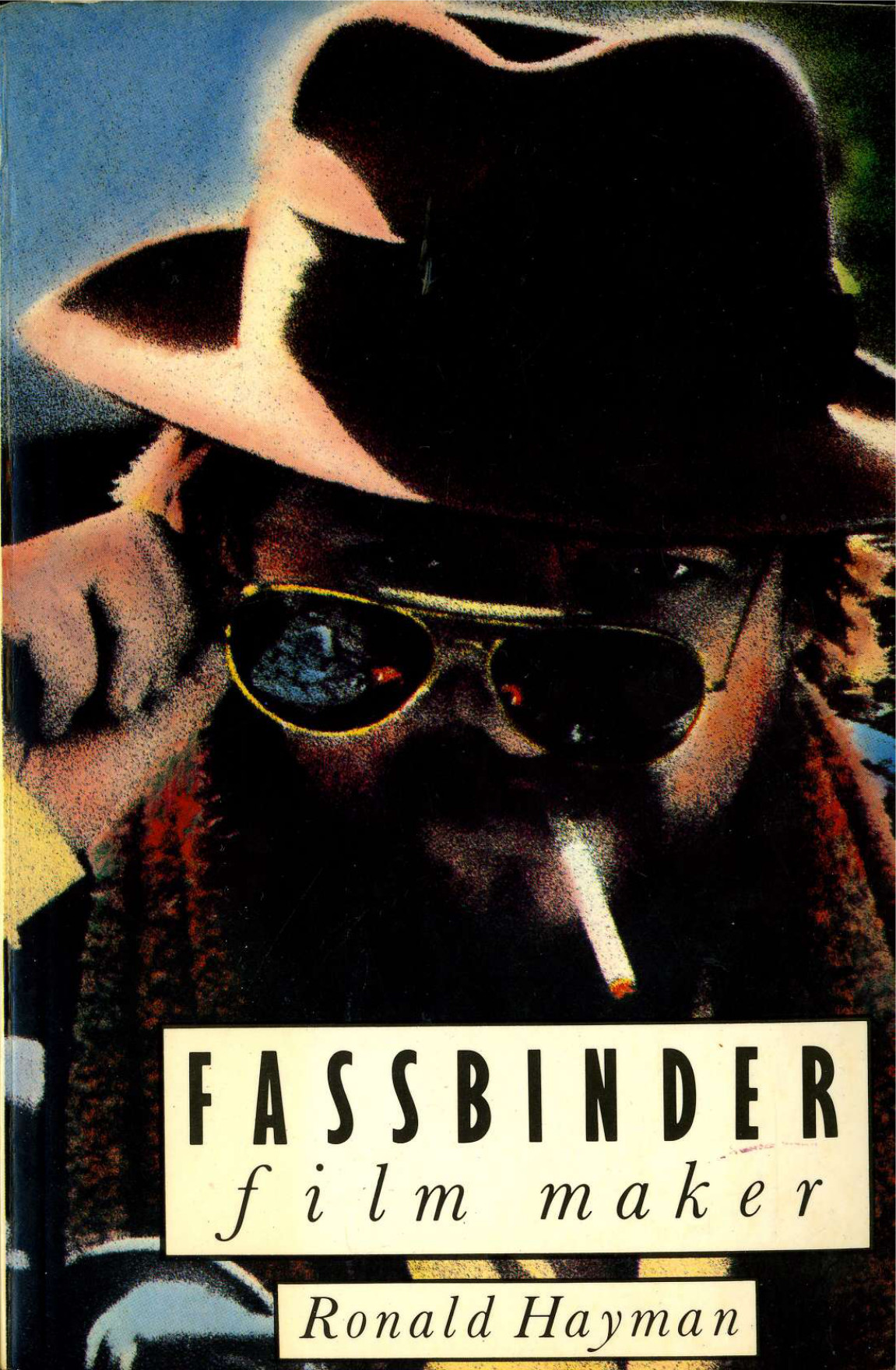Ronald Hayman: Fassbinder: Film Maker (1984)
Filed under book | Tags: · biography, cinema, film, film history

Rainer Werner Fassbinder was simultaneously a maker of films and a man who ‘played with people’: the forty-three films he directed before his early death at the age of thirty-seven in 1982 were products of a convoluted game of emotions between him and a close-knit group of versatile actors. He wielded astonishing power over his artists, but though he was an oppressor, he made passionate cinematic statements about liberty in such productions as The Marriage of Maria Braun, Despair and Veronika Voss.
The films could not have been what they were if Fassbinder had not been what he was – the product of a lonely childchood, moody, impatient, jealous, vengeful, a drug addict, generous, brutal, and most vicious of all towards himself.
Aided by film stills and photographs from the private collections of those who knew him most intimately, Ronald Hayman presents a fascinating insight into the relationship between this obsessional, explosive personality and the unique films he created.
Publisher Weidenfeld and Nicolson, London, 1984
ISBN 297784471
164 pages
PDF (no OCR)
Comment (0)Andrew Hodges: The Alan Turing: Enigma (1983/2012)
Filed under book | Tags: · biography, computing, cryptography, history of computing, history of mathematics, mathematics, war

The full story behind the persecuted genius of wartime codebreaking and the computer revolution.
A new edition to celebrate Alan Turing’s centenary, includes a new foreword by the author and a preface by Douglas Hofstadter.
Alan Turing was the extraordinary Cambridge mathematician who masterminded the cracking of the German Enigma ciphers and transformed the Second World War. But his vision went far beyond this crucial achievement. Before the war he had formulated the concept of the universal machine, and in 1945 he turned this into the first design for a digital computer.
Turing’s far-sighted plans for the digital era forged ahead into a vision for Artificial Intelligence. However, in 1952 his homosexuality rendered him a criminal and he was subjected to humiliating treatment. In 1954, aged 41, Alan Turing committed suicide and one of Britain’s greatest scientific minds was lost.
First published in 1983, Burnett Books
Centenary edition
With Foreword by Douglas Hofstadter
Publisher Vintage, Random House, 2012
ISBN 1448137810, 9781448137817
624 pages
notes by the author
publisher
google books
PDF (MOBI)
Comment (0)Robert Irwin: Memoirs of a Dervish: Sufis, Mystics and the Sixties (2011)
Filed under book | Tags: · 1960s, algeria, biography, counterculture, drugs, islam, london, mysticism, occultism, sufism

“For many children of the sixties a’journey to the East’was a necessary rite of passage. In an extraordinary memoir Robert Irwin contrasts the contexts of England – the new culture and the hippy trail – with those of Algeria – bombs and guns and mysticism.
In the summer of 1964, while a military coup was taking place and tanks were rolling through the streets of Algiers, Robert Irwin set off for Algeria in search of Sufi enlightenment. There he entered a world of marvels and ecstasy, converted to Islam and received an initiation as a faqir. He learnt the rituals of Islam in North Africa and he studied Arabic in London. He also pursued more esoteric topics under a holy fool possessed of telepathic powers. A series of meditations on the nature of mystical experience run through this memoir. But political violence, torture, rock music, drugs, nightmares, Oxbridge intellectuals and first love and its loss are all part of this strange story from the 1960s.”
Publisher Profile Books, April 2011
ISBN 1847654045, 9781847654045
239 pages
Reviews: Steve Jelbert (The Independent), Barnaby Rogerson (The Independent).
EPUB (updated on 2017-4-8)
Comments (2)
